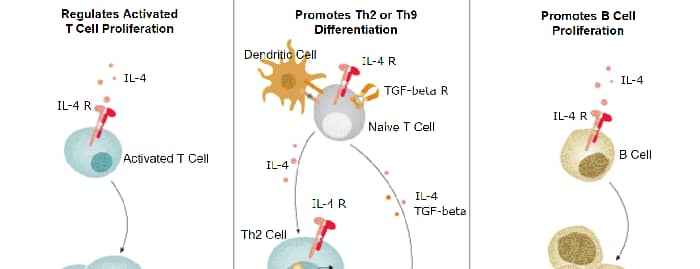Mouse VCAM‑1/CD106 Biotinylated Antibody Summary
Phe25-Glu698
Accession # P29533
Applications
Mouse VCAM-1/CD106 Sandwich Immunoassay
Please Note: Optimal dilutions should be determined by each laboratory for each application. General Protocols are available in the Technical Information section on our website.
Preparation and Storage
- 12 months from date of receipt, -20 to -70 °C as supplied.
- 1 month, 2 to 8 °C under sterile conditions after reconstitution.
- 6 months, -20 to -70 °C under sterile conditions after reconstitution.
Background: VCAM-1/CD106
VCAM-1 (CD106), a member of the immunoglobulin superfamily, is a cell surface protein expressed by activated endothelial cells and certain leukocytes (such as macrophages). VCAM-1 expression is induced by IL-1 beta, IL-4, TNF-alpha and IFN-gamma. VCAM-1 binds to leukocyte integrins VLA-4 and alpha 4 beta 7. The human and mouse VCAM-1 proteins share approximately 76% amino acid similarity. During the inflammatory adhesion mechanism, activated integrins halt rolling leukocytes and attach them firmly to the vascular endothelium. They do this by binding to their ligands, for example VCAM-1, on endothelium. The VCAM-1: VLA-4/ alpha 4 beta 7 interaction is also thought to be involved in the extravasation of white blood cells through the blood vessel wall to sites of inflammation. ELISA techniques have shown that detectable levels of soluble VCAM-1 are present in the biological fluids of apparently normal individuals. Furthermore, a number of studies have reported that levels of VCAM-1 may be elevated or lowered in subjects with a variety of pathological conditions.
Product Datasheets
FAQs
No product specific FAQs exist for this product, however you may
View all Antibody FAQsReviews for Mouse VCAM‑1/CD106 Biotinylated Antibody
There are currently no reviews for this product. Be the first to review Mouse VCAM‑1/CD106 Biotinylated Antibody and earn rewards!
Have you used Mouse VCAM‑1/CD106 Biotinylated Antibody?
Submit a review and receive an Amazon gift card.
$25/€18/£15/$25CAN/¥75 Yuan/¥2500 Yen for a review with an image
$10/€7/£6/$10 CAD/¥70 Yuan/¥1110 Yen for a review without an image





